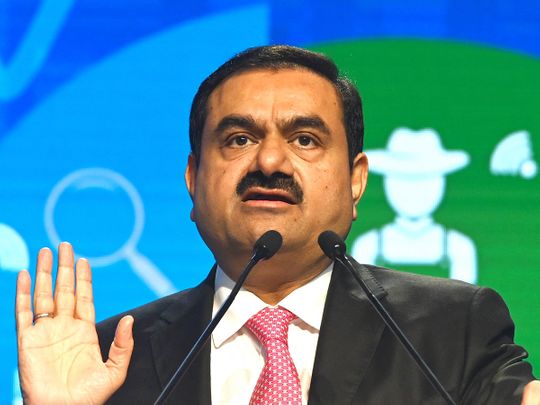
New Delhi: India's Adani Group issued a detailed response on Sunday to a Hindenburg Research report that sparked a $48 billion rout in its stocks, saying it complies with all local laws and had made necessary regulatory disclosures.
The conglomerate led by Asia's richest man, the Indian billionaire Gautam Adani, said last week's Hindenburg report was intended to enable the U.S.-based short seller to book gains, without citing evidence.
For 60-year-old Adani, the stock market meltdown has been a dramatic setback for a school-dropout who rose swiftly in recent years to become the world's third richest man, before slipping last week to rank seventh on the Forbes rich list.
Adani Group's response comes as its flagship company is pushing ahead with a $2.5 billion share sale. This has been overshadowed by the Hindenburg report, which flagged concerns about high debt levels and the use of tax havens.
"All transactions entered into by us with entities who qualify as 'related parties' under Indian laws and accounting standards have been duly disclosed by us," Adani said in 413-page response issued late on Sunday.
"This is rife with conflict of interest and intended only to create a false market in securities to enable Hindenburg, an admitted short seller, to book massive financial gain through wrongful means at the cost of countless investors," it added.
Hindenburg did not immediately respond to a request for comment on the Adani response on Sunday.
Hindenburg's report questioned how the Adani Group has used offshore entities in tax havens such as Mauritius and the Caribbean islands, adding that certain offshore funds and shell companies "surreptitiously" own stock in Adani's listed firms.
Adani said on Thursday that it is considering taking action against Hindenburg, which responded on the same day by saying it would welcome such a move.
The report also said five of seven key listed Adani companies have reported current ratios - a measure of liquid assets minus near-term liabilities - of below 1.
This, the short-seller said, suggested "a heightened short-term liquidity risk".
It also said key listed Adani companies had "substantial debt" which has put the entire group on a "precarious financial footing" and that shares in seven Adani listed companies have an 85% downside on a fundamental basis due to what it called "sky-high valuations".
Defending its practice on pledging shares of its promoters - or key shareholders - the Adani Group in its response said that raising financing against shares as collateral was a common practice globally and loans are given by large institutions and banks on the back of thorough credit analysis.
The group added there is a robust disclosure system in place in India wherein listed companies need to disclose their overall pledge position of shares to stock exchanges from time to time.
It said that its promoter pledge positions across portfolio companies had dropped from more than 50% in March 2020 in some listed stocks, to less than 20% in December 2022.










